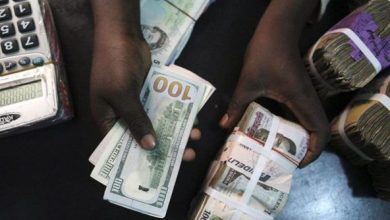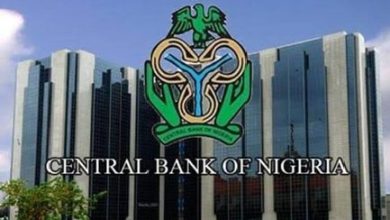CBN Injects $41 Million into FX Market as Naira Holds Steady at ₦1,551 Per Dollar
Currency trades at ₦1,551 per dollar after apex bank steps in amid reserve concerns.
Rising oil prices and global tensions fuel caution as experts warn of fresh volatility ahead.
After several days of uncertainty in the Nigerian foreign exchange market, the naira closed flat on Thursday, June 19, 2025, trading at ₦1,551 per US dollar, the same rate as the previous day. This stability comes as the Central Bank of Nigeria (CBN) stepped in to support the local currency by selling $41 million to authorized foreign exchange dealers.
Despite recent depreciation, the naira’s performance showed signs of resilience following CBN intervention, with the official rate fixed at ₦1,549.42 per dollar. Market records showed spot rates fluctuated between a high of ₦1,553.99 and a low of ₦1,546, as reported by Market Forces Africa.
CBN market intervention
To boost dollar liquidity and calm rising corporate demand, the apex bank sold foreign exchange to licensed dealers at rates between ₦1,546.15 and ₦1,550. The FX sale is part of efforts to contain pressure on the naira amid low reserves and market volatility. While the central bank had injected about $580 million into the market in May, June’s intervention so far has been relatively smaller.
The CBN targeted approach comes in the wake of increasing demand from importers and corporates, as well as global oil market developments affecting capital flow into emerging economies like Nigeria. Analysts suggest the bank’s smaller but consistent sales may reflect a strategy to manage reserves more conservatively as oil revenues fluctuate.
Forex reserves under pressure
Meanwhile, Nigeria’s foreign exchange reserves have fallen below the $38 billion mark after steady outflows in recent weeks. The depletion of reserves has heightened concerns about the sustainability of defending the naira in the medium term, especially amid a rising demand for dollars.
Data from previous weeks shows the CBN had sold large volumes of FX to ease pressure, leading to a temporary appreciation of the naira. In May, these interventions helped reverse the currency’s downward trend, pulling it back from rates exceeding ₦1,600 to the ₦1,500 region. However, the continued decline in reserves has made such large-scale interventions more difficult.
Global oil prices surge amid geopolitical tensions
Adding to market uncertainty, international oil prices climbed significantly on the same day, following escalating tensions between Israel and Iran. With fears of a wider conflict brewing in the Middle East and speculation about potential US involvement, oil prices reacted swiftly.
Brent crude, a key global benchmark, gained $2.15, or 2.8%, to close at $78.85 per barrel, its highest point since January. Similarly, West Texas Intermediate (WTI) crude rose by $2.06, settling at $77.20 per barrel. These spikes have raised concerns that prolonged price increases could drive inflation and elevate fuel-related costs globally, including in import-reliant economies like Nigeria.
Gold, typically a safe-haven asset in times of geopolitical instability, remained relatively stable. Spot gold dipped slightly by 0.1% to $3,365.79 per ounce, while US gold futures fell by 0.7% to $3,383.28 per ounce.
Analysts warn of renewed volatility
Despite the temporary stability of the naira, market watchers remain cautious. A recent report noted that several commercial banks, including Access Bank and Zenith Bank, had adjusted their forex selling rates, contributing to market jitters.
Earlier optimism about a sustained recovery in the naira was dampened by news of backchannel talks between Israel and Iran, which saw crude oil prices dip slightly and injected further uncertainty into the currency market.
Experts warn that while oil price gains could provide Nigeria with higher export revenues in the short term, they also risk pushing up domestic fuel costs and worsening inflation if not matched with supply-side interventions.
As the CBN continues to manage a delicate balance between defending the naira and conserving reserves, all eyes remain on both domestic monetary actions and international developments that could sway the FX market in the coming weeks.



